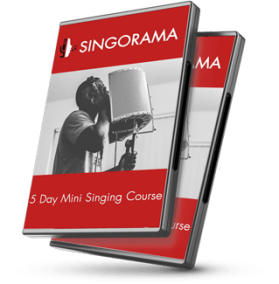A lot of aspiring singers often search online for “learn to sing tips”, but they get overwhelmed by the abundance of information available. They get confused by the conflicting singing advice they find and become discouraged by the lack of reliable information.
But fear not, because this article will help you take your first step into the world of singing.
Many people dream of becoming professional singers. More than the glitz and glamour of the business, the love for the craft itself is what propels them to search the web for learn to sing tips.
If you’re one of these people, read on to get started and discover these easy to learn to sing tips.
Before You Begin Singing
Before you get into the actual process of singing and composing your own songs, we advise you to listen to different musical genres that will broaden your appreciation for music. This will also help you choose which style fits your voice and overall personality.
Ask yourself what type of music resonates with you the most. Do you prefer rock, opera, R&B or pop music? The decision is yours!
Once you’ve figured out the genre that best suits you, you can now start looking for that special song that you have to master – this will be the first step on the path to becoming an excellent singer.
Take into consideration the tune and beat of the song as well as the notes. Can you comfortably hit those notes?
Is it appropriate for your vocal range? If you’re a beginner, can you sing fast or slow songs?
Try to do ascending and descending scale exercises to figure out the notes that you can comfortably sing and those that you need to work on. It will also help to have a guide that will enrich your knowledge about singing as well as warm-up and vocal exercises.
Online Courses
You’ll be amazed at the number of self-taught singers; most of them acquired their knowledge from books and observing other singers’ techniques. In other words, many have studied how to sing on their own without formal training.
The problem with this approach is the lack of a structured learning plan. This creates the risk of developing bad habits which will be hard to correct as a singer progresses to the more advanced stages.
However, there are lots of resources online that aspiring singers can take advantage of. For instance, online courses are your best bet if you’re too busy to consult with a singing coach.
Also, professional lessons can be very expensive and you really have to adjust your schedule and devote time for your classes.
Modern online singing courses contain guide books as well as audio and video files. Some even have accompanying software that enables the students to record their voice as they go through the program.
Some courses also feature games designed to train a singer’s ear and other useful bonus material to help them get the most value out of their purchase.
However, not all online singing courses are created equal. Some training courses promise results but in reality, they fall short of customers’ expectations.
If you wish to learn how to sing through the web, make sure to check the product reviews before making a purchase.
Additionally, don’t forget to check their refund policy. Most online singing courses offer an 8-week money back guarantee. This will give you time to try out their material and return it in case you’re not satisfied (as long as you’re within the 8-week trial period).
Advanced Techniques
Learning is a never-ending process – not even veterans will claim that they know everything about singing. If you’ve already mastered the basic warm-ups and vocal exercises, you need to continue practicing in order to improve.
If you really have a love for the craft and want to be a better singer, you can join singing groups to improve your skills and learn more techniques.
Advanced singing techniques such as mastering your head voice, falsetto, vibrato and increasing your range can only be realized by doing the actual exercises. You can’t learn these things by just reading a book or listening to audio courses.
Patience and diligence is the key to last during longer practice sessions. In time, you’ll eventually learn transposition (singing songs in a key that matches your voice), reading music and even composing your own songs.
Lastly, don’t be afraid to experiment with different musical styles. Try out the ones that you like and check if it’s compatible with your voice.
Don’t be worried that you’ll sound awkward or make mistakes – this is a necessary part of becoming a professional singer. Unless you’re willing to crash and burn at the beginning, you’ll never find your true voice.
All in all, there is so much to singing. Whether you hire a professional teacher, enroll in an online course, or join a singing group (e.g. church choirs), you should always be committed to learning and practicing new skills to improve your craft.



